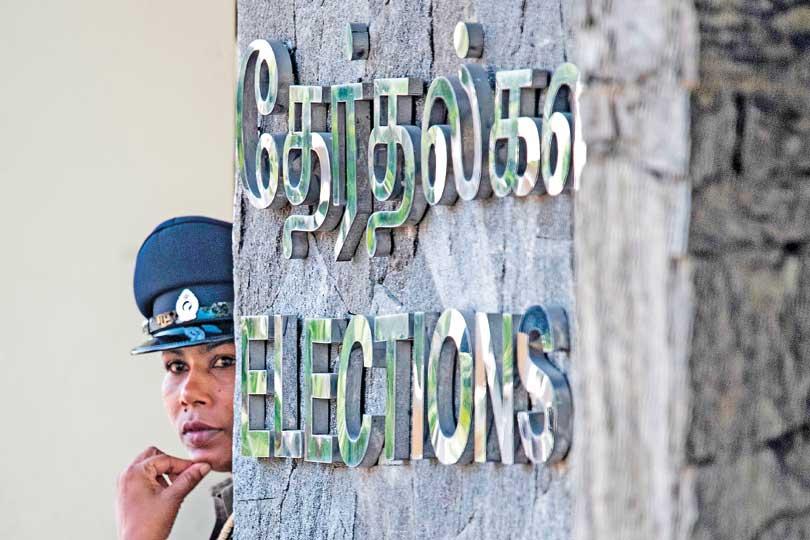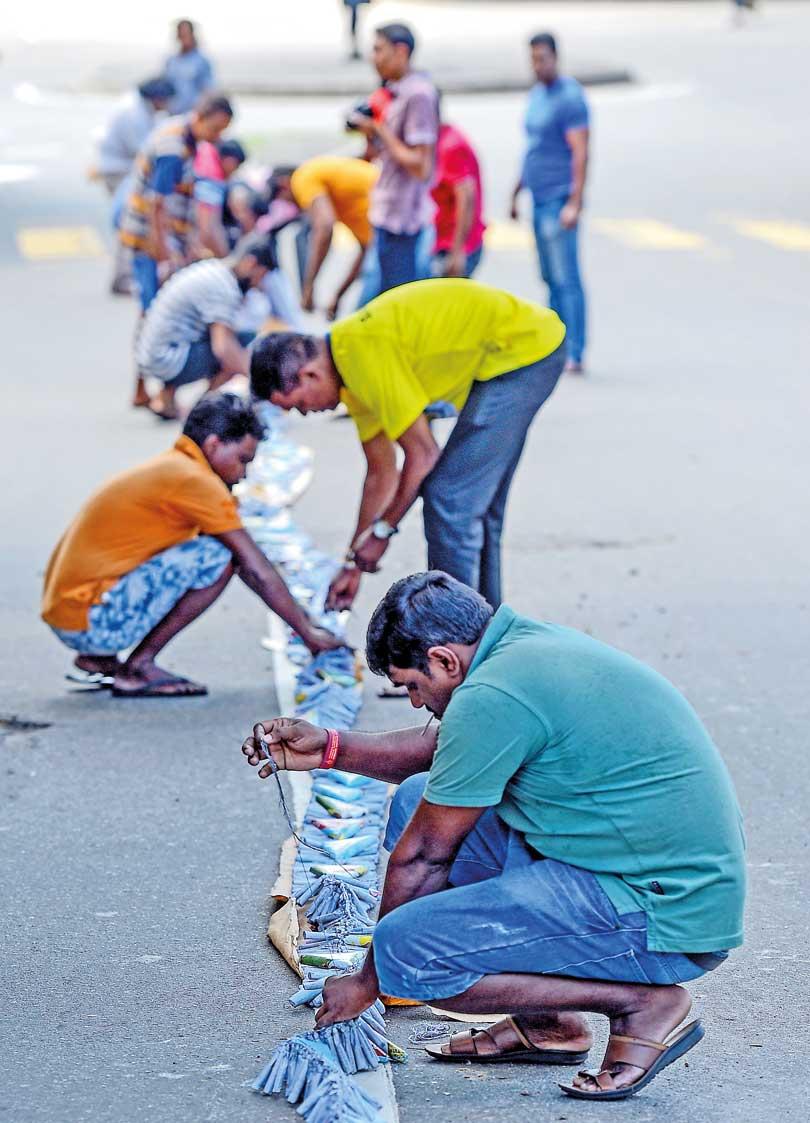Reply To:
Name - Reply Comment

 Sri Lanka said good morning to Monday with a sense of belief that the future would be better for them under the new presidency of Gotabaya Rajapaksa.
Sri Lanka said good morning to Monday with a sense of belief that the future would be better for them under the new presidency of Gotabaya Rajapaksa.
Fire crackers were lit and milk rice was served on the road side to celebrate Gotabaya’s victory after a hotly contested presidential elections produced a winner on Sunday (November 17). This was despite views being expressed that neither of the two popular candidates, Gotabaya and Sajith Premadasa might not secure 50% of the total votes.
One mode of communication used, social media, played a somewhat key role in shaping the minds of voters and providing vital election related information. But one area where social media failed was when it came to capturing the pulse of the downtrodden masses; a community which is not that tech savvy, but produced the vital votes in favour of the former military man. It is said that these votes largely helped the winner gain 1,360,011 majority votes and push for victory.
Though Sajith has a history of working closely with the downtrodden masses, the less-affluent chose to vote for Gotabaya in villages where there is a overwhelming Sinhala presence. President elect Gotabaya in his victory speech underscored that he knew that he would secure victory through the support of the Sinhala community.
The winner has invited all communities to join with him in taking the country forward. But a quick study of post election graphics reveals that a bitter north and east didn’t vote for Gotabaya. The indifference towards Gotabaya was shown mostly in the election results that were recorded in the Jaffna, Batticaloa, Vavunia and Tricomale districts. This was understandable because people in these areas suffered the most during the war where Gotabaya gave leadership to the tri forces as Defence Secretary. Whether the minority citizens from the northern and eastern provinces would join in the development drive initiated by Gotabaya depends on the former Defence Secretary’s attitude towards members of this minority community.
Though Sajith has a history of working closely with the downtrodden masses, the less-affluent chose to vote for Gotabaya in villages where there is a overwhelming Sinhala presence
A good number of Facebook posts are suggesting that this was an election between the Sinhalese and Tamils. There are mischievous social media users who are quick to post graphics of how the voting took place from a geographical perspective. These graphics are drawn with the intention of showing people that when following the votes cast for Sajith it leaves a trail similar to the Ealam map drawn by Tiger separatists. It’s those Sinhalese hardliners who tread this line of thinking who divide the country through such thinking.
A politician must be sensitive enough to realise when a community is disgruntled. In this regard Sajith’s senses worked better compared to Gotabaya. From a position of perspective Sajith saw ways of uniforming a divided nation. Gotabaya didn’t talk much about the Tamils other than addressing the wage issue concerning tea estate workers.
One of the key issues in the future is how development work would be carried out in areas like the north where people didn’t vote for Gotabaya. The northerners have minds of their own and agitate when their culture, religion and private space are threatened. It would be good if the new regime, set to take over administration, wins over the Tamils and also make them think like they are stakeholders of this country.

Fire crackers were lit on the road side to celebrate Gotabaya’s victory (AFP)
The Tamil community in the north dislikes the heavy security presence and the numerous road blocks set up there. An issue which cropped up in the north before the elections merits mention here. There was a tense atmosphere in some parts of the Jaffna district when the Army defied orders given by President Maithripala Sirisena himself to dismantle road blocks and for the military forces personnel to be confined to barracks during the elections. According to newspaper reports Police Spokesman SSP Ruwan Gunasekere had said that according to the election laws all road blocks had to be removed so as to not cause an impediment to the free passage of voters. It’s laudable here that the police and the Elections Commissioner resolved the matter using the law as the solution and not the powers enjoyed by the majority citizens or that of politicians.
The new regime to be sworn in can take a cue from this incident. The Tamil community is sensitive, but they have the potential to resist strong arm tactics of lawmakers. This community responds better to remedies given to problems which come through the application of the law. It would serve Gotabaya well if he creates a system where the law is applicable equally to everyone.
Those who wish to tread the line that Sajith’s votes denote the support extended to him by separatist elements need to compare the UNP strongman with M.K Sivajilingam, who also contested the presidential elections. Sivajilingam fared miserably at the elections and was rejected by the Tamil people. Sajith winning the trust of the people from the north and the east displacing Sivajilingam augers well for the Green Man’s future and that of solving the national question.
A politician must be sensitive enough to realise when a community is disgruntled
It’s not very clear as to what Sajith would do politically next because he has to now return to Sirikotha and face the UNP Exco and the working committee. He has to look Ranil Wickremesinghe in the eye and convey a strong message that he was able to poll 5,564,239 votes, which is 41.99% of the total polled votes as against Gotabaya who secured a 52.25% majority with 6,924,255 votes. Ranil may be thinking that he destroyed Sajith politically. But Ranil probably didn’t expect Sajith to lose gracefully after putting up a spirited fight. In the final analysis one thing was clear. Gotabaya’s supporters knew exactly what they wanted; security within a developed nation. Sajith’s supporters were not very sure as to what they wanted, but were pretty sure about what they didn’t want: Gotabaya to win. It was a gamble in the end because all what voters could go by were on the promises made in the respective manifestos.
Gotabaya had everything behind him to win plus his charismatic brother Opposition Leader Mahinda throwing his weight behind him. Ranil standing behind Sajith was a disadvantage itself; given the corruption charges levelled against the Wickremesinghe led Yahapalana Government.
Unlike how losing presidential candidates behaved in the past, Sajith was present at the Elections Commission, where the final results were announced, to wish the winner. Sajith lost in a manner that will force Gotabaya to keep an eye on him. This the former military man will do as he sets about developing a country wobbling under the weight of foreign debts.